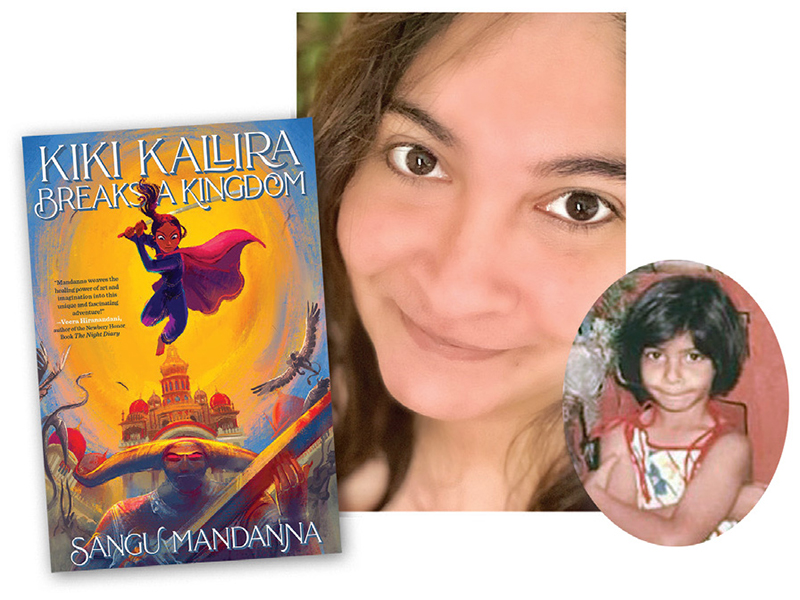Sangu Mandanna on OCD, Empowerment, and Well-Intentioned Gatekeepers | Middle Grade & Mental Health
The author of Kiki Kallira Breaks a Kingdom discusses having obsessive-compulsive disorder as a child, the feelings of shame that came with it, and those who would try to keep stories about mental health from kids.
 Sangu Mandanna's middle grade novel Kiki Kallira Breaks a Kingdom is about an 11-year-old Indian girl with obsessive-compulsive disorder (OCD) who creates a world in her sketchbook that turns out to be real. Mandanna, profiled in SLJ's feature "Not OK? That's OK," talks here about her childhood OCD, the feelings of shame that came with it, and the importance of writing about mental health to empower readers.
Sangu Mandanna's middle grade novel Kiki Kallira Breaks a Kingdom is about an 11-year-old Indian girl with obsessive-compulsive disorder (OCD) who creates a world in her sketchbook that turns out to be real. Mandanna, profiled in SLJ's feature "Not OK? That's OK," talks here about her childhood OCD, the feelings of shame that came with it, and the importance of writing about mental health to empower readers.
What drew you to write about a character with mental illness? Why does this subject matter?
I was about Kiki’s age when my own OCD really kicked in, and the thing I remember most was how guilty and ashamed I felt. I didn’t know what it was or why my brain was doing these things, so I was so sure for a very long time that there was something wrong with me. And when I started writing about Kiki, I knew that was the story I wanted to tell. I wanted to tell the story of a young girl who starts out feeling ashamed, and thinks she’s weak and wimpy, only to discover she’s every bit as brave, strong, and loved as anyone else. Young readers deserve to see all kinds of differences normalized in fiction, including mental illness.
What is the most challenging part of writing about this for middle grade readers?
To be honest, I think the gatekeeping is the most challenging part! There are a number of publishing professionals, librarians, book buyers, and parents who believe topics like mental illness are too big or too dark for young readers, which makes it harder to get these stories into those readers’ hands. Most of the time, this kind of gatekeeping comes from good intentions, from a place of wanting to protect children, but I do think children need these stories. They need to see their own feelings reflected and normalized, however big or dark. I know I did!
What do you hope readers take away from your book?
More than anything, I hope that any reader struggling with the same feelings Kiki struggles with comes away feeling stronger, feeling happier in their own skin, and feeling empowered to ask for help if they haven’t already.
Any recommendations for books with good mental health representation?
The Shape of Thunder by Jasmine Warga is fantastic. I also recently read and enjoyed The Goldfish Boy by Lisa Thompson, and Some Kind of Happiness by Claire Legrand.
RELATED
The job outlook in 2030: Librarians will be in demand
The job outlook in 2030: Librarians will be in demand
ALREADY A SUBSCRIBER? LOG IN
We are currently offering this content for free. Sign up now to activate your personal profile, where you can save articles for future viewing






Add Comment :-
Be the first reader to comment.
Comment Policy:
Comment should not be empty !!!